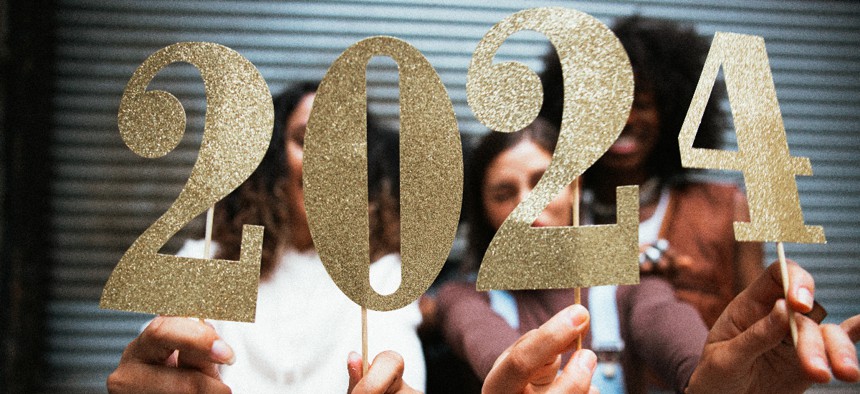Opinion
Opinion: Make gender equality count in 2024
Money is the key ingredient in helping organizations fight violence and discrimination against women and others.

LeoPatrizi – Getty
It is no secret that women bear a disproportionate share of systemic burdens. While we have made strides in raising awareness about gender-based discrimination, economic inequality, violence against women and many other long-standing problems, we all know much still needs to be done. So, why haven’t we yet achieved gender equality? A key barrier to reaching our goals comes down to one ingredient: money.
Overall financial support for initiatives and organizations that specifically support women and girls makes up a mere 1.8% of total U.S. philanthropic dollars, a stunning fact considering that women represent over half the population globally. It’s even more shocking when you take a close look at the current state of women’s rights and equality right here in New York City.
While the national gender pay gap is narrowing, the disparity in New York City has widened since 1997. Women make up approximately half of the labor force in New York City, yet, since 2017, they only earn 90 cents to every dollar earned by men. This gap is particularly pronounced for women of color: Black women earn just 57 cents and Hispanic women make only 53 cents for every dollar earned by white men.
Sadly, these statistics match Amplify Her Foundation’s own research; over half of the 1,000 women surveyed across New York City’s five boroughs reported experiencing gender-based discrimination in the workforce.
This discrimination in the workforce has an obvious knock-on effect on the larger picture of women’s health and security. Women in New York City are more likely than men to live at or below the federal poverty line, the majority of whom are women of color, undocumented, or a combination thereof.
These aren’t just quality of life issues. Poverty leads to a lack of health care, food insecurity, immense mental and physical stress and makes women vulnerable to unsafe or even deadly situations. For instance, a lack of financial resources is a major reason women are unable to leave their abusers. In 2022, the number of domestic violence victims in New York City increased by 8.5% relative to 2019. While domestic violence isn’t limited to one gender, women are disproportionately impacted: nationally, 25% of women have experienced sexual violence, physical violence and/or stalking by an intimate partner. Domestic violence can sometimes turn lethal; Black women are the most likely to be killed by their abusers.
There are countless other disheartening statistics that show how far New York City has to go to achieve gender equality. However, if the groups dedicated to addressing gender-based violence and discrimination received the level of support they deserved, New York City could become a national leader in its efforts to realize deep and lasting positive change in the lives of women and girls.
While the urgency of global conflicts, environmental disasters, threats to democracy, peace and security all demand immediate investments, none of these challenges can be solved without the full participation of women in all aspects of decision-making. Meanwhile, countless women’s organizations are left fighting for a sliver of that 1.8% of funding, forced to make difficult and sometimes heart-wrenching decisions about what they can and cannot afford to accomplish.
The start of a new year is the time to think deeply about what kind of city we want to live in, and to set priorities for 2024 and beyond. We’re asking New Yorkers to continue to strive for justice and equality by supporting the work of one of the many nonprofits committed to creating a better world for women, girls, and their communities. You can find them on the Amplify HerⓇ Foundation website, the New York Women’s Foundation website, as well as numerous other online lists.
We are not alone in our quest to realize gender equality – myriad organizations are devoted to making it happen. They just need the funding to get across the finish line.